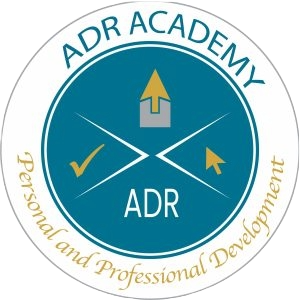Short Course Description
This course covers the stages of the mediation session, expected conduct, and expectations from the parties and the mediator. Full credit for the training videos is given to the National Mediation Board (NMB). ADRA makes this training available through its Learning Management System (LMS) and provides participants an opportunity to evidence the training with a Certificate of Training.
Duration: 3 Clock hours | 3.5 Continuing Mediation Education Hours (3.5 Ethics, 1 Diversity).
Scholars describe the stages of mediation conferences as a 5, 6, 7, or 8-stage approach. No matter the number of stages of mediation the Mediators use various techniques to open, or improve, dialogue and empathy between disputants, aiming to help the parties reach an agreement. The National Mediation Board (NRB) lists 6 Stages depicted in the 8 training videos in this course.
Mediation is a structured, interactive process where an impartial third party assists disputing parties in resolving conflict through the use of specialized communication and negotiation techniques. The mediator uses a wide variety of techniques to guide the process in a constructive direction and to help the parties find their optimal solution. A mediator is facilitative in that she/he manages the interaction between parties and facilitates open communication.
Training Covered:
- Stage 1: Intro and Opening Statements
- Stage 2: Presenting the Case
- Stage 3: Developing the Issue Statement
- Stage 4: Discussing Interests
- Stage 5: Brainstorming – Options
- Stage 6: Caucus – Evaluate Options
- Stage 7: Building Consensus – Agreement
- Stage 8: Sign-off and Closing
About the NMB
The National Mediation Board (NMB), established by the 1934 amendments to the Railway Labor Act of 1926, is an independent U.S. federal government agency that facilitates labor-management relations within the nation’s railroad and airline industries.
Pursuant to the Railway Labor Act, NMB programs provide dispute resolution processes to effectively meet its statutory objectives: avoiding interruption to commerce or to the operation of any carrier; forbidding any limitation upon freedom of association among employees; providing for the prompt and orderly settlement of all disputes concerning rates of pay, rules, or working conditions; and providing for the prompt and orderly settlement of all disputes growing out of grievances related to the implementation and management of collective bargaining agreements.
Reviews
4.6
- 5 stars40
- 4 stars18
- 3 stars1
- 2 stars2
- 1 stars0



Good concept complete example of the mediation process.
good reminder of the 6 step process but rarely see this type of cooperation in real life.
Interesting model
course was well presented
Well done. Good illustration of various steps of the mediation process.